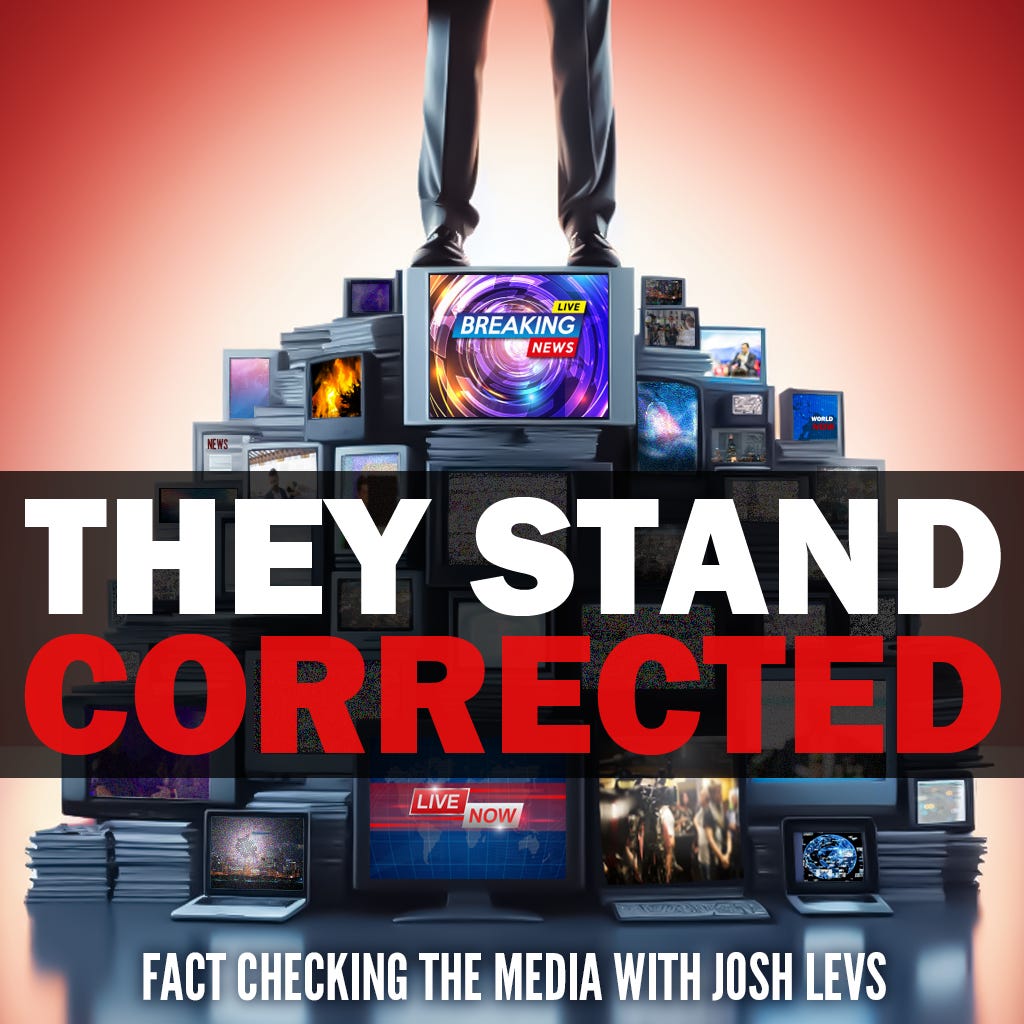Our society is plagued by legacy media’s profound failures. Big news agencies regularly refuse to fact check, leave out context, give certain crucial topics scant attention, and put their own political concerns ahead of right and wrong. But you wouldn’t know it from how they celebrate themselves publicly as paragons of truth telling.
There is one disastrous practice that some news agencies have discussed openly: bothsidesism. Yet they also keep engaging in it. So it’s little wonder that many of you have been asking me what we can do about it. Ironically, the answer is to focus on what concerns news executives the most. They’re often far more worried about image than mission.
First, let’s look at what bothsidesing is. Webster’s says the term “refers to the media or public figures giving credence to the other side of a cause, action, or idea to seem fair or only for the sake of argument when the credibility of that side may be unmerited.”
In a classic example, a news agency tells you one person says it’s raining and another says it’s not, but the news agency never looks outside to tell you who is right. Sometimes, it takes place in sneakier ways. People make what seem to be rational arguments, but those arguments are based on layers of lies that take time to piece through. Other times, bothsidesism is as blatant as rain.
For a case in point, see something I’ve fact checked recently: the Sunday political talk shows. TV news networks present these as pinnacles of political journalism. For example, Kristen Welker, host of NBC’s Meet the Press, recently talked about the importance of being “armed with the facts” and holding people “to account for their words.” But her show, just like all the others, lets people lie up a storm uncorrected -- including Trump officials, surrogates, and the president himself. Of course, this lack of fact checking is equal opportunity, available to people on “both sides” of the aisle. No one comes on air to tell you who’s right.
It’s weekly bothsidesing in action, reaching millions of viewers. Meanwhile, a quick search turns up more than half a dozen instances of people on NBC talking about how bad bothsidesism is—even during a discussion on Meet the Press.
This has been going on for many years. Back in 2016, New York Times columnist Paul Krugman described bothsidesism as “the almost pathological determination to portray politicians and their programs as being equally good or equally bad, no matter how ludicrous that pretense becomes.” But the Times kept on doing exactly that.
So what do we do? I wrote recently that anytime you see journalistic failure, you should email the news agency and, crucially, copy me at tsc@joshlevs.com. (This is not a way to contact me directly; it’s just for cc’ing me on these messages.) At your request, I am assembling a list of public email addresses for major news organizations. I do my best to look into all these emails. I can then forward or reply all, sending the message directly to people at each news agency whose addresses I don’t list publicly.
In your message, avoid generalities. Instead, focus on two key things that news executives have to take responsibility for: facts and rules. List any falsehoods and misleading claims. And questions their standards and practices. Ask questions like: In booking live guests, do you consider whether the person has a long record of lying to the media? After pretaping an interview, do you look into the veracity of what a guest said before airing it? Do you consider the presentation of two different sides to be journalism, even if the presentation does not tell the audience what’s true?

Tell the executives that you expect a reply. The chances are that you won’t receive one. But this is why it’s so important to copy me. It shows the news agency that I might cite your examples in an episode of They Stand Corrected. Executives aren’t very worried about individual emails, but they are worried about a public platform drawing attention to their journalistic failings.
I know this not only from 20 years inside mainstream media, but also from people inside big news operations today. They tell me what’s going on in their newsrooms. They explain how obsessed many top executives are with image over substance. They know that bad publicity is the most powerful lever to bring about change.
It’s worth the effort. Some might see the light and finally take steps to transform so that they provide the country with truth, which is necessary for a functioning democracy.
It’s also true that some legacy media might be so far gone that there's no coming back. This is why new sites like the Contrarian, podcasts, and other emerging media can play such an important role. Where big media fail, we come in and fight the good fight.
Josh Levs is host of They Stand Corrected, the podcast and newsletter fact-checking the media. Find him at joshlevs.com.







